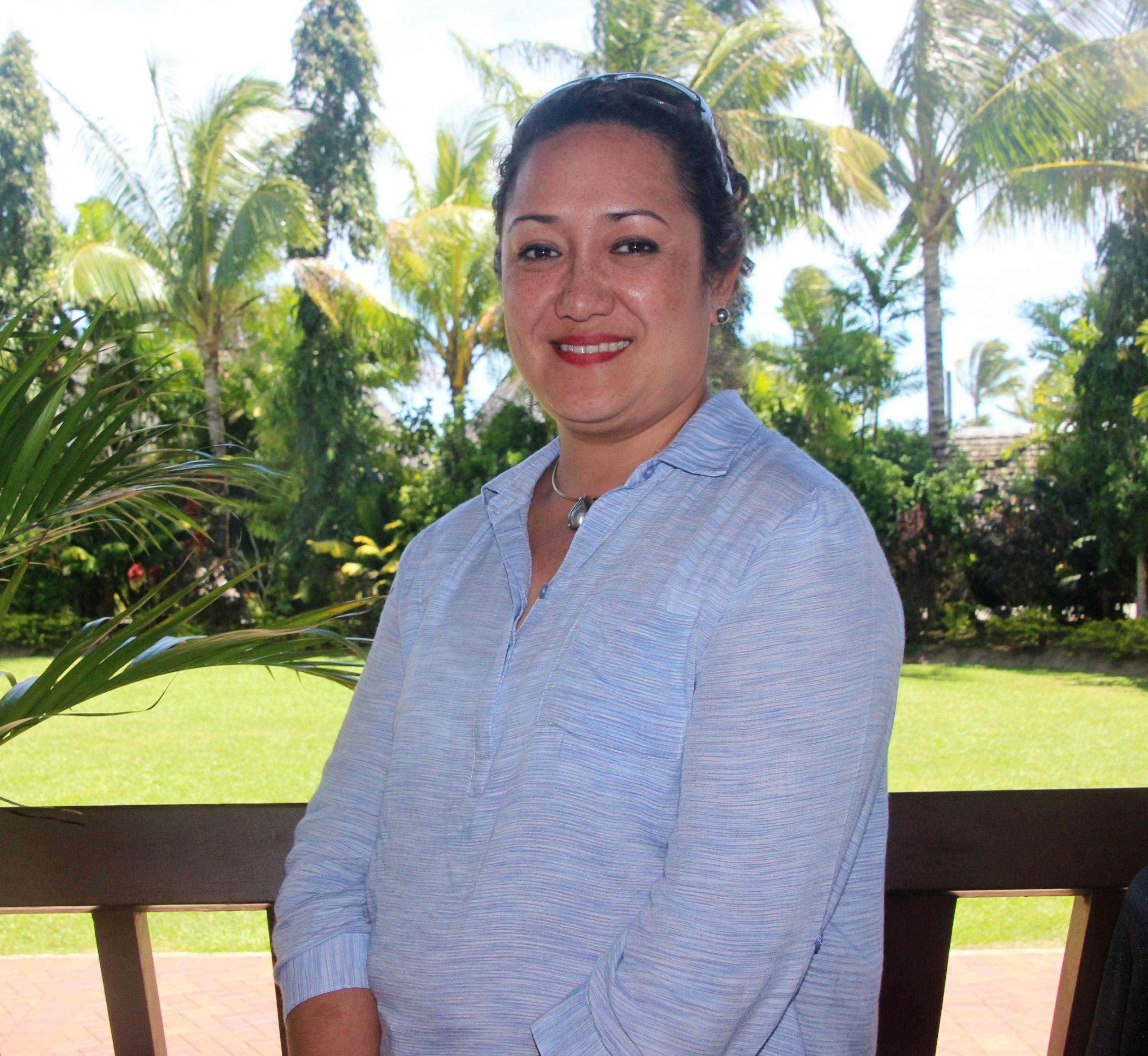

Cervical cancer can be prevented and can be cured if it is detected early. This is the message, Dr Amanda Noovao Hill, an alumnus of the Fiji School of Medicine (FSM), now FNU’s College of Medicine, Nursing and Health Sciences (CMNHS) and the current Acting Head of Department-Surgery, Anaesthesia and Women’s Health would like the women of Fiji and the Pacific to know.
Getting women to be tested for cervical cancer has been a long-standing challenge despite knowing that the best way to preventing this silent killer is by early detection with testing.
An Obstetrics and Medical Gynaecology (O&G) Specialist, Dr Hill is closely involved with cervical cancer projects. She believes strongly in promoting women’s health and educating about women’s health.
Dr Hill completed her Bachelor of Medicine, Bachelor of Surgery (MBBS) at FSM in 1997, a Diploma in Obstetrics and Medical Gynaecology (Dip O&G) from the University of Auckland in 2003, and, her Masters in Medicine Obstetrics and Gynaecology (MMed O&G) and later Graduate Certificate in Medical Education (GCME) at FSM in 2005 and 2014 respectively.
“It is interesting and special coming back and working in the halls I lived in as a medical student. I was born in CWM and ended up studying as well as working in the same Unit I was born in.”
Becoming a medical specialist
A one-time FSM student, Dr Hill is now a regular feature at CMNHS’ Postgraduate Orientations in her capacity as the Postgraduate O&G Programme Coordinator. She encourages students to look after each other and make friends.”
“There are many challenges in medical school and these can be bearable if you make friends. So one of the things I look back now and value is the importance of my classmates, some of whom are my colleagues now.”
Medicine was her first love and Dr Hill came to FSM from the Cook Islands as a result of securing a scholarship. It was a homecoming of sorts as her mum is from Fiji and she had family here.
Her first job after graduation was an internship at Colonial War Memorial Hospital (CWMH) in 1998 where she was attached to the Internal Medicine section.
“It is a hard year. In the first week of my internship, I certified several deaths in one shift. It was quite damaging and demoralising as a young doctor but it also made me stronger.”
She has since worked in New Zealand, Fiji and the Cook Islands.
One of the major highlights of her life was not working for two years. “I decided to stop and have a family.” She has lovely seven-year-old twins.
Being a full time academic and clinical staff is a constant challenge especially when trying to maintain balance with research and family commitments.
Pacific Island Cervical Cancer Screening Initiative (PICCSI)
Dr Hill is one of the founders of Pacific Island Cervical Cancer Screening Initiative (PICCSI) with Dr Nicola Fitzgerald. It is an NGO that was founded to provide accessible testing and a quick turnaround time for cancer screening. PICCSI takes cervical cancer screening out into the communities and allows women to take a swab themselves. This means it is a private procedure and the women do not have to feel embarrassed.
“Two years ago Dr Fitzgerald came over and said she had an idea and asked if I was interested. It was an opportunity. She had been contact with colleagues who had done the same project in Papua New Guinea so why couldn’t women in Fiji have the same testing opportunity?”
“The attitude may be that it’s a first world thing but it’s not. Self-swab is the way to go”, says Dr Hill. So, they embarked on the first pilot of self-swab tests for the Human Papilloma virus (HPV) for the first time last year.
“It went well. We received feedback that women liked it that they could do it themselves. One of the reasons women do not come for Pap Smear is because it’s an intimate process so if they could take a swab and give it to a professional, it would be much better.”
In the process, the women take a swab and return it to the medical volunteer. The swab is then put in the gene-expert machine which looks for different genes that cause cervical cancer. If a woman tests negative, then the chances of her getting cervical cancer is low. If they test positive, then they do a colposcopy and if a lesion is found it is biopsied and treated right away.
Preparing for the future
It’s been an interesting journey for Dr Hill.
In regards to cervical cancer, Dr Hill points out that, there is still a lot of work to be done but the outlook is positive.
“Cervical cancer impacts not just the women but her family too. We can’t treat cancer beyond a certain stage in Fiji so it’s a lot more economically sensible to try and prevent it. This requires a combination of strategies which include vaccination against the HPV for both females and males, and early detection which hopefully in the near future will mean HPV virus self-swab testing. But until that time, we ought to continue to promote regular screening with pap smears, and ongoing health promotion and education activities.
Dr Hill credits her success to her upbringing and parents. “The mindset was that there’s no shortcut to success.”
I wanted to be a specialist but things were not in my favour at the time. She decided to resign and went to New Zealand to complete her Postgraduate studies. She is not shy to admit it that she failed it twice before succeeding. After that she came to Fiji to do her Masters.
“People can tell you that you can’t do something but know what you want and keep going for it.”